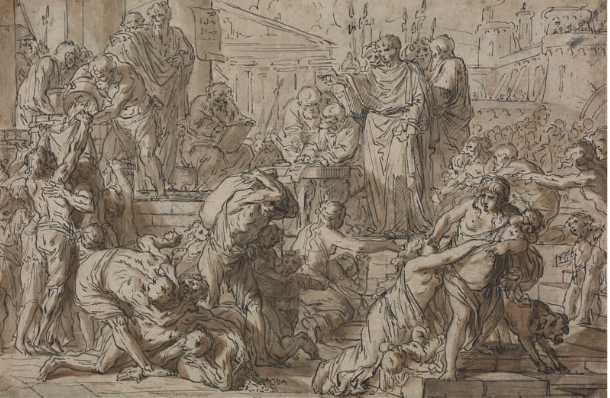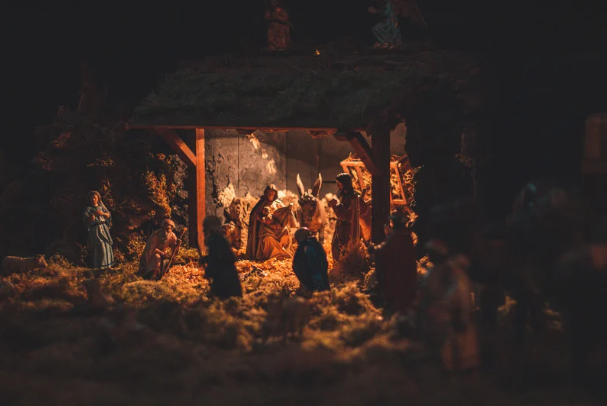The origins of Christmas traditions

December has commenced and people are beginning to put up their light-adorned trees and garlands of red, green, and white. But where do these traditions come from? The answer lies in the largely pagan origins of the holiday, which Christianity influenced over time, shaping Christmas into what it is revered as today.

In the early fourth century, the term “pagan” was an encompassing term given by traveling Christian missionaries to anyone involved in one of the various religious practices different from Christianity. Not including Judaism, any polytheistic, ethnic religion was commonly coined as paganism, but the term eventually evolved to refer to a religious practice focused on a sacred nature, the cycles of life and death, and spiritual meanings. However, as Christianity swept through Europe, the intrigued missionaries picked up small customs, beliefs, and traditions that were adapted to fit their religion. This is where Christmas can be traced back to.

One of the major pagan celebrations that can be tied to Christmas is the winter solstice, which was an acknowledgment of the shortest day and longest night of the year, marking the end of the year’s harvest, as well as the death and rebirth of the Sun. Following the Winter Solstice were the 12 days of Yuletide (Yule), which took place between the solstice and the next solar year. Feasts, warm cider, and the burning of Yule logs were common practices, which were all used to welcome optimism and good fortune in the cold winter months. However, the holiday most largely reflective of modern-day Christmas is the Roman festival of Saturnalia. This was a festival of great appreciation, with all work being temporarily suspended, slaves being given freedom for the day, and moral limitations being made less strict. Saturnalia holds much resemblance to Christmas, as many of its traditions were passed down through time.

Gift Giving
During the celebration of Saturnalia, the Roman pagans would exchange small gifts with one other person in favor of good luck and the prospect of a bountiful harvest when winter dissipated.
Santa Clause
The idea of a wise, old man giving gifts to children dates back to the bishop St. Nicolaus, who lived around 4 century AD and was known to give gifts to children and to the poor. Going back even further, the god Odin was regarded as a big man with a white beard who would fly around on his 8-legged horse, Sleipnir, during the winter. Children would leave treats for the horse by their chimneys and Odin was said to reward them with presents.
Mistletoe and Holly
Many sects of pagans of the past regarded mistletoe as a sacred plant. Romans even viewed it as a symbol of honor for the god Saturn, for which they would promote fertility in the face of mistletoe. Holly was also deemed sacred and would be crafted in wreaths to be gifted during Saturnalia.
Tree Decorating
During Saturnalia, Romans would hang small, representative ornaments on trees outside of their homes and many German tribes did the same, but with fruits and candles.
Carols
The pagan tradition of wassailing involved people traveling around in small groups, singing loudly to banish evil spirits and wish their neighbors good fortune.

Over time, these traditions have been altered and adjusted to fit the Christian religion, shaping the ways in which the birth of Jesus is celebrated on Christmas day. However, the exact date of this birth is highly contemplated even amongst followers of the religion, as the tending of flocks of sheep, difficult traveling conditions of winter, and practicing dates all point to a birthday outside of December. Nevertheless, pagan influence maintains its grip on the holiday, likely being the main point of influence for Christmas being the whimsical day of December 25th.










